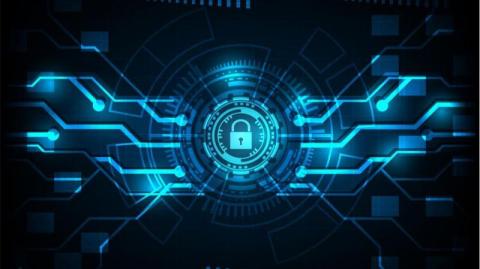
We are living in the Digital World. Almost all of our personal data would be available on the internet. Companies too store confidential customer and financial data on the cloud and their own servers. A large amount of digital data that is personal and/or confidential is vulnerable to Cyberattacks.
<h2>A trend of Cybersecurity Threats in 2020 </h2>
<b>Phishing Gets More Sophisticated:</b> Phishing attacks, in which targeted digital messages are transmitted to fool people into clicking on a link that can then install malware or expose sensitive data, are becoming more sophisticated. Such attacks enable hackers to steal user logins, credit card credentials, and other types of personal financial information, as well as gain access to private databases.
<b>Ransomware Strategies Evolve:</b> Hackers deploy technologies/ programs that enable them to literally kidnap an individual or organization’s databases and hold all of the information for ransom. The rise of cryptocurrencies like Bitcoin is credited with helping to fuel ransomware attacks by allowing ransom demands to be paid anonymously.
<b>Cryptojacking—</b> The cybercriminals hijacking third-party home or work computers to “mine” for cryptocurrency.
<b>Cyber-Physical Attacks—</b> The threat of hacks targeting electrical grids, transportation systems, water treatment facilities, etc., represents a major vulnerability going forward.
<b>State-Sponsored Attacks—</b> Beyond hackers looking to make a profit through stealing individual and corporate data, entire nation-states are now using their cyber skills to infiltrate other governments and perform attacks on critical infrastructure. Cybercrime today is a major threat not just for the private sector and for individuals but for the government and the nation as a whole.
<b>IoT Attacks—</b> The number of devices connected to the IoT is expected to reach 75 billion by 2025. It includes laptops and tablets, of course, but also routers, webcams, household appliances, smartwatches, medical devices, manufacturing equipment, automobiles, and even home security systems. More connected devices mean greater risk, making IoT networks more vulnerable to cyber invasions and infections. Once controlled by hackers, IoT devices can be used to create havoc, overload networks, or lockdown essential equipment for financial gain.
<b>Third Parties (Vendors, Contractors, Partners)—</b> Third parties such as vendors and contractors pose a huge risk to corporations, the majority of which have no security system or dedicated team in place to manage these third-party employees.
<h3>What Is Cyber Security?</h3>
The process of protecting internet-connected systems, including hardware, software, and data from cyber-attacks.
Protection means protection against unauthorised access, unauthorised modification, and unauthorised deletion of data. Nowadays, Cyber Attacks are rapidly evolving because of upcoming technologies and are posing a great threat to sensitive data.
<h3>Why is Cyber Security Important?</h3>
Cyber Security has been identified as the most significant threat by World Economic Forum and one risk can really derail any financial services firm off the road- and that's one risk is always round the corner. Further, the emergence of the Internet Economy or Sharing economy, to allow companies to work in collaboration and integration of systems has massively up the Cyber Security Risks.
Governments all over the world are bringing their close attention to Cybercrimes and data breaches. GDPR, Personal Data Protection Bill in India Bill are some examples of it.
<h3>Impact of Cybercrime </h3>
Lack of focus on Cybersecurity or cyber-attacks can damage businesses in many ways including:
<li>Economical Loss:</li> Loss of intellectual property [IP], financial information, and IT networks/ systems availability.
<li>Reputational Loss:</li> Losing customer trust, Suffer from Bad PR, Identity theft, etc.
<h3>Prevention of Cybercrime </h3>
To prevent your Organisation from Cybercrime; consider the following practices:
<li>Safeguard Protected Data</li>
<li>Avoid Phishing scams - beware of suspicious emails and phone calls </li>
<li>Keep software up-to-date </li>
<li>Install antivirus/anti-malware protection </li>
<li>Back up your data </li>
<li>Adopt two-factor authentications </li>
<li>Invest in good Cyber Security Services </li>
<li>Develop Policy and procedure to protects all assets </li>
<br></br>
Riskpro can help you with your <a href="http://www.riskpro.in/cybersecurity">Cybersecurity</a> needs through our services which include:
1. Develop Cyber Security Policy/ Procedure
2. Cyber Security – Risk Assessment
3. Cyber Crisis Management Plan
4. Cyber-security Awareness Training
For more details, connect with us at info@riskpro.in
<b><small>References:</b> <small>University of San Diego, Jakoyo Blog Spot, BizzSecure, JavaTPoint </small>
